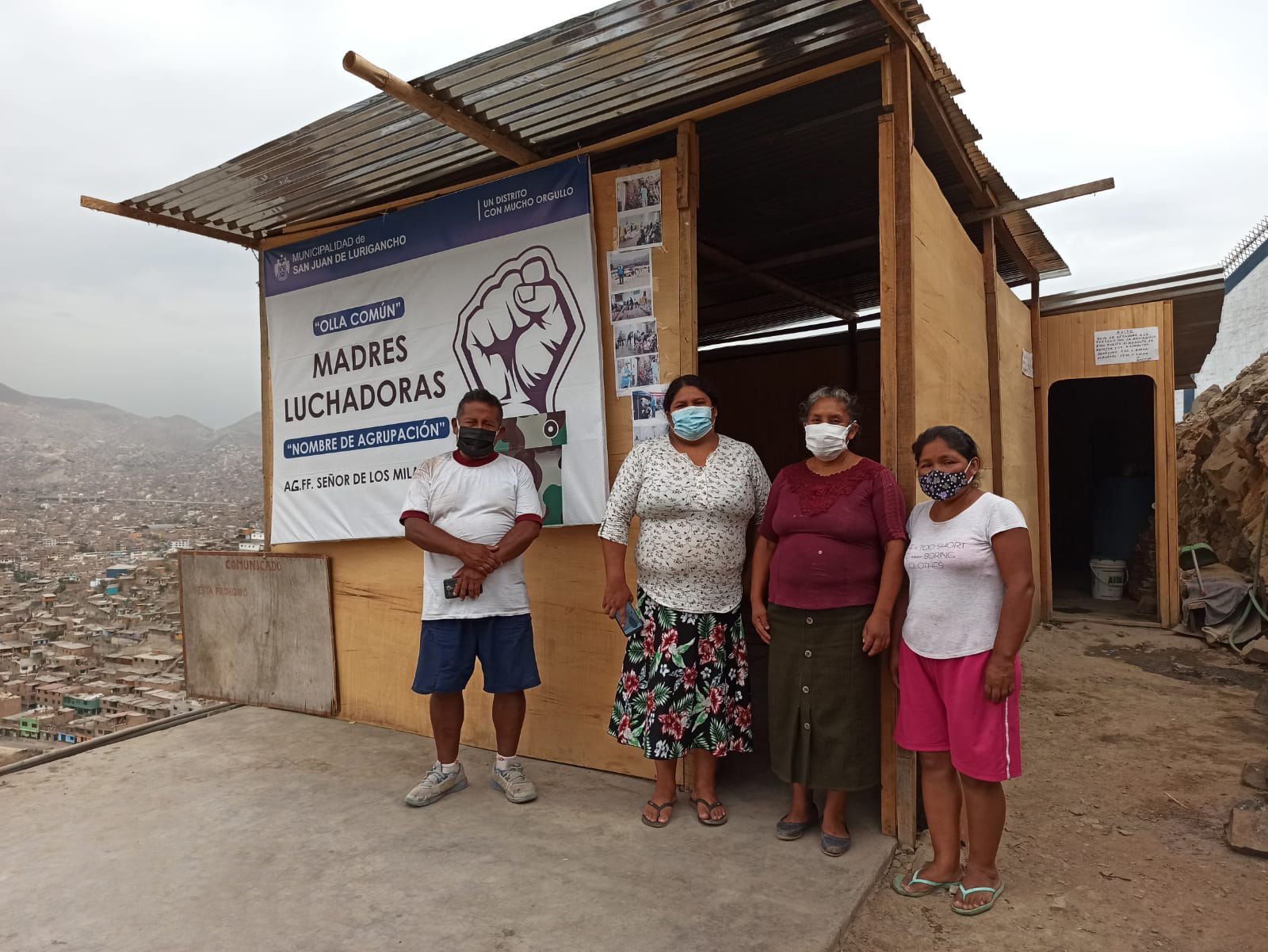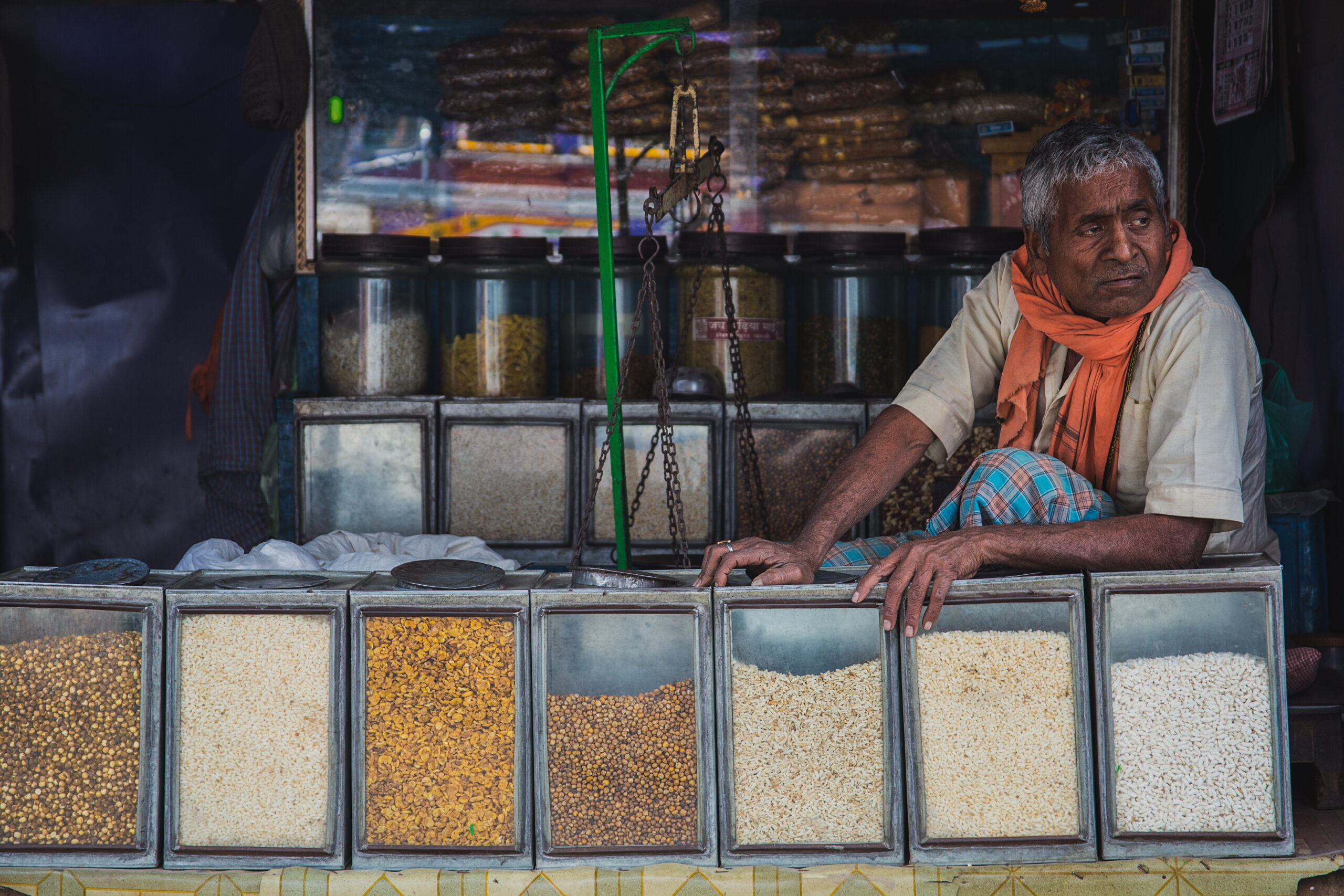In 2020, IDRC mobilised to support research to respond to the Covid-19 pandemic. Its largest initiative within this response, Covid-19 Responses for Equity, sought to understand the socioeconomic impacts of the pandemic, generate better policy options for recovery and build resilience against future global shocks and emergencies.
Across the world, the pandemic has had severe impacts on people’s livelihoods and food security, social and economic safety nets, gender power dynamics, rights and health. It dramatically exposed weaknesses and inequities in social protection systems, food production and distribution, job security, economic policies and access to information and services. The Covid-19 Responses for Equity initiative has produced recommendations and solutions to address these impacts.
The findings from the initiative’s 21 projects, spanning 42 low- and middle-income counties, have profound implications for pandemic preparedness and response in the Global South. The research has identified the economic and social policies required to build inclusive social protection systems, target the most vulnerable with fiscal measures and use macroeconomic policy to promote gender equality.
Solutions and recommendations include, for example, support for community-managed kitchens in Peru to address acute food shortages and relief measures for migrant workers in India. These solutions are grounded in the lived experiences of the hardest-to-reach communities and in rigorous modelling and macroeconomic analysis.
Key Findings and recommendations
A recent report published by the Institute of Development Studies (IDS) summarises the key findings and recommendations emerging to date from the Covid-19 Responses for Equity initiative. IDS is supporting the research teams to maximise the learning generated across the research portfolio and deepening engagement with governments, civil society and the scientific community.
Here are some highlights of the initiative’s learnings:
Research highlights
- Food system reforms must target women and young people
- Social protection systems must become more inclusive and flexible
- Equitable economic policies are central to more effective pandemic response
- Collaborative governance is needed to respond to health emergencies
Food system reforms must target women and young people
Covid-19 has had a major impact on household production and access to quality, nutritious food. This is due to losses of income combined with increasing food prices and temporary restrictions on the movement of people and produce. The research also highlights the predicament of people working in the informal sector, particularly women, including migrant workers, waste-pickers, sex workers and street vendors.
Recommendations for addressing the impacts of Covid-19 on marginalised groups include policies to support vulnerable parts of the food chain during crises and adaptive social protection measures that target women and young people in the informal sectors.
In Lima, Peru, the research focused on community-based kitchens that emerged during the pandemic to provide affordable and subsidised food in poor urban neighbourhoods. The Group for the Analysis of Development (known as GRADE), strengthened these informal organisations by developing a training programme with the municipality about nutrition, management, and health practices that has now grown into a national zero-hunger strategy. The same team partnered with the Peruvian Bank Association and local governments to introduce digital money in food markets to reduce the risk of spreading Covid-19 and to keep these local food sources running. Work is now underway on an e-commerce platform for food vendors.
This kind of evidence-based food system reform supports longer-term recovery and builds resilience to future shocks.
Social protection systems must become more inclusive and flexible
Across much of the research published so far from this initiative, there are observations around the impact of Covid-19 on groups who are excluded from social protection schemes. The pandemic has exacerbated pre-existing weaknesses in social protection in all regions.
Migrant workers are an important vulnerable group because they lack family networks to cope in crises. Researchers from the Quantum Hub and the International Center for Research on Women analysed a rental housing programme for migrants in India. Their recommendations include holding consultations to set an affordable rent limit; using data on migrant workers to ensure adequate housing capacity, and including provisions for single women, disabled people and widowed women.
In many countries, Covid-19 sparked interest in policies leading to a universal basic income. A report from the Arab Reform Initiative explored the concept within the context of the Middle East and North Africa, its pros and cons, and difficulties related to how it could be funded.
Other studies propose recommendations for more inclusive and adaptive approaches to social protection as being central to preparing for future health and economic emergencies.
Equitable economic policies are central to more effective pandemic response
Governments have had to respond urgently with monetary and fiscal policies to mitigate the socioeconomic impacts of the Covid-19 pandemic, especially for the most vulnerable groups in society. Policymakers juggled the priorities of keeping businesses afloat and providing cash and food relief to individuals, while controlling inflation and managing public debt.
In a project led by the South African Institute of International Affairs, researchers found that a combination of policies in Uganda helped to mitigate the pandemic’s negative economic impacts. The response included market interest rate reductions to encourage private sector investment and household consumption. Policies supported stability by moderating liquidity, capital-adequacy and credit risks in financial markets. Tax relief provided a temporary liquidity shield for small businesses dealing with a drop in demand and more risk-averse creditors.
The gender implications of macroeconomic policies are difficult to identify because women’s experiences vary according to income levels, migration status, age, sexual orientation and whether they have children. Although more gender disaggregated data is needed, recommendations for macroeconomic policy to improve gender equality include identifying and targeting female-dominated sectors such as the garment industry or agriculture, alleviating unpaid care responsibilities and supporting women-owned businesses, especially in the informal sector.
Collaborative governance is needed to respond to health emergencies
The pandemic has both mobilised citizens to support others in need and generated a violent backlash against marginalised groups. The research has found examples of strong civil-society action that can be harnessed by different levels of government to support a more effective response to the pandemic.
In Lebanon, a group of concerned citizens formed to point out shortcomings in government responses to the pandemic. Their report called for stronger public communications and better coordination with local authorities, among other recommendations. Research in Tunisia also proposed planning at the municipal level, especially to reach people with special needs or without family support and women who have experienced violence.
Civil society groups have also collaborated with governments in areas such as contact tracing and channelling food relief.
Some studies have also highlighted violent security sector and militarised state responses, underpinned by panic and long-standing political disputes. A research team in South Africa, for example, called for the professionalisation and demilitarisation of police forces, the need for recognizing the challenges people face during a disaster and fostering social cohesion and cooperation.
Protecting the most vulnerable
As a body of research, the 21 projects provide powerful evidence to guide investments that can reach some of the population groups that are most vulnerable to shocks, in particular, rural women-led households, informal workers, migrants and racialised and ethnic minorities. These groups have suffered some of the worst social and economic impacts of the pandemic due to deep-rooted inequalities.
The recommendations offer better ways of building resilient food systems, inclusive social protection systems, coordinated economic policy responses and collaborative governance to protect the most vulnerable against environmental and economic shocks.
This piece was originally published as a research action article on the IDRC website. The text was adapted from an article published on the CORE website.

